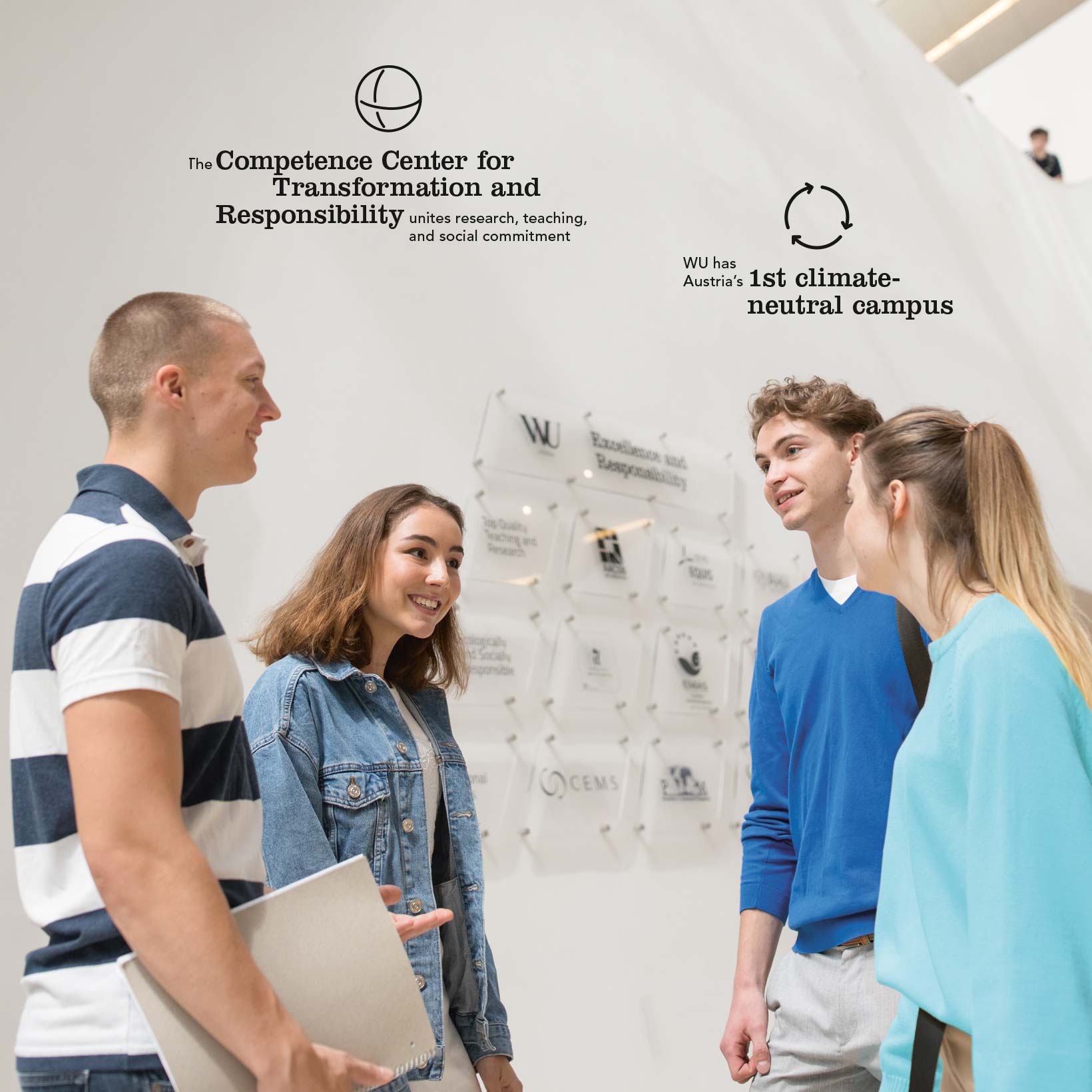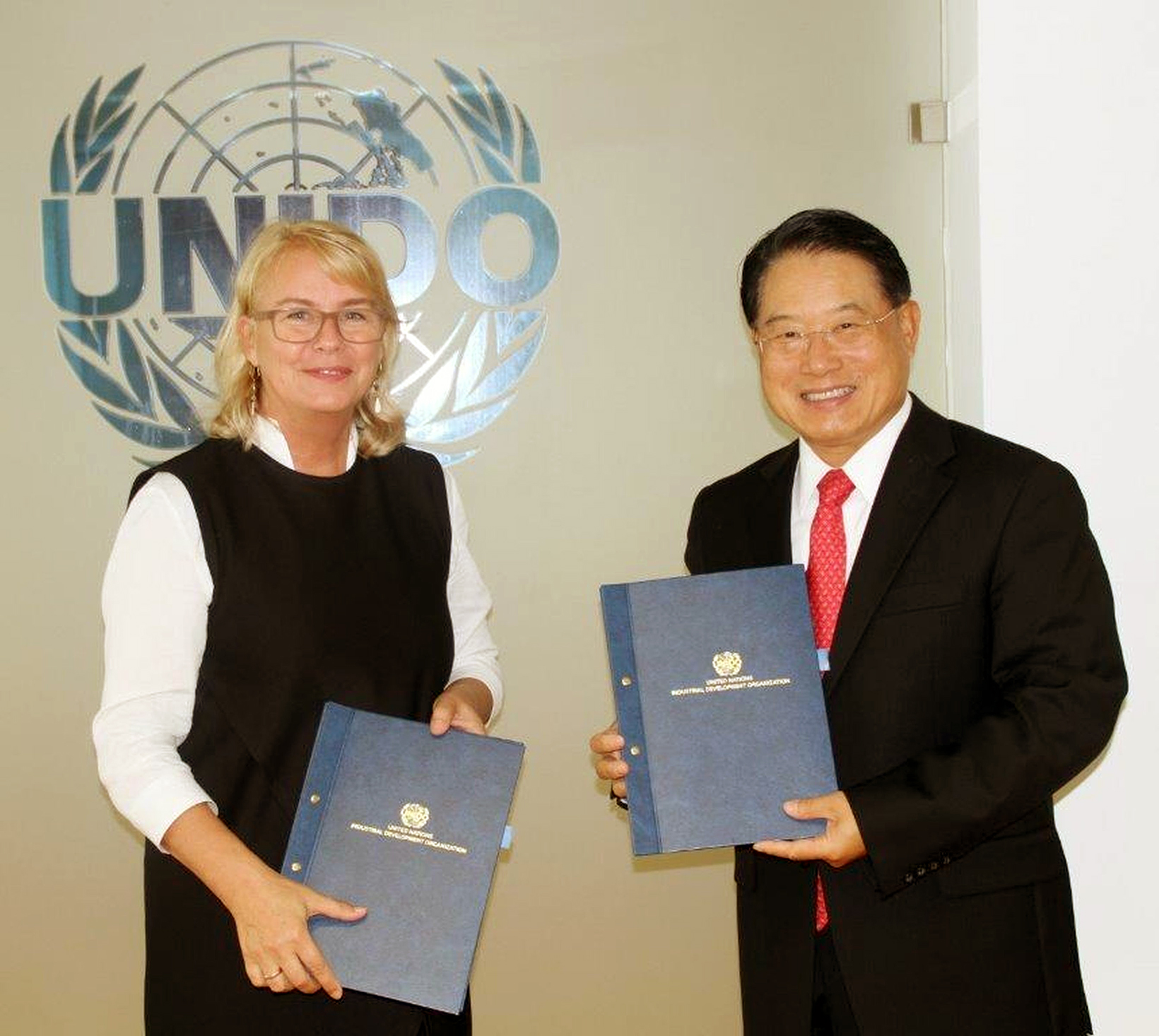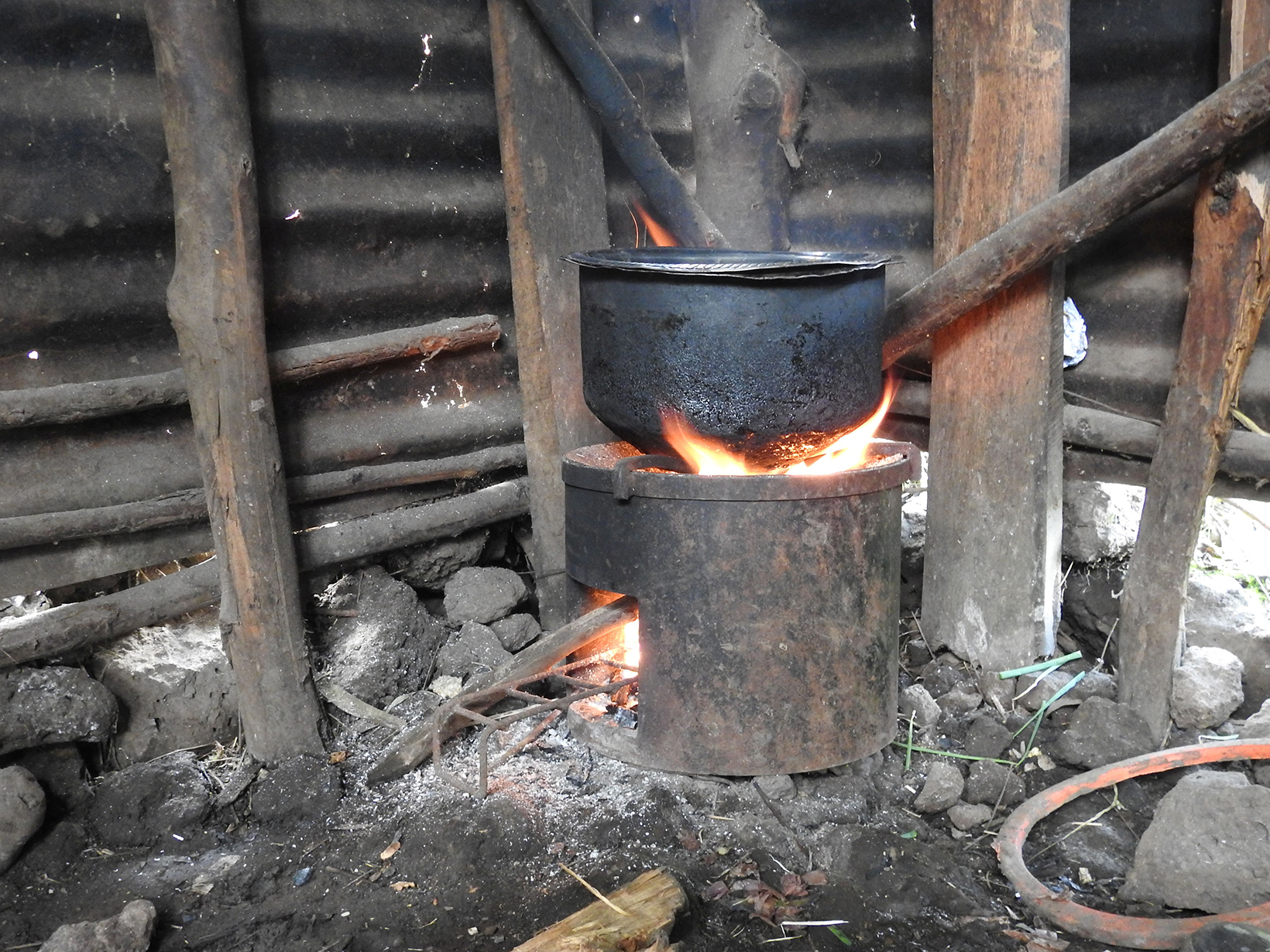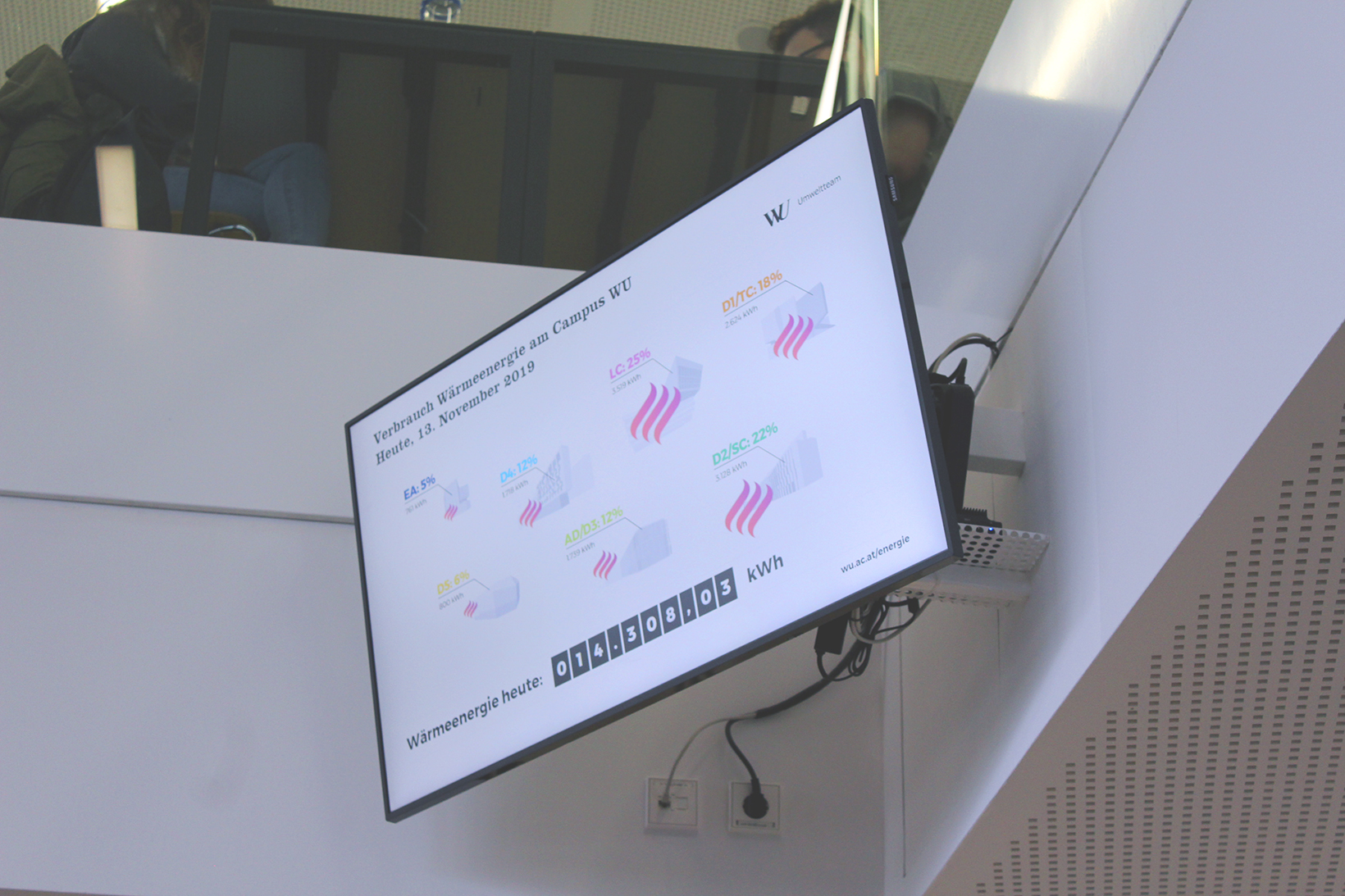
Competence Center for Sustainability Transformation and Responsibility
The 17 Sustainable Development Goals (SDGs) of the United Nations came into effect on January 1, 2016. They are intended to ensure sustainable economic, social, and ecological development worldwide. At the beginning of 2019, WU’s Competence Center for Sustainability was renamed the Competence Center for Sustainability Transformation and Responsibility (STaR) and its focus was widened.
The interdisciplinary center was created as a platform for research, teaching, and social commitment on sustainable transformation. By holding public events and acting as a knowledge hub, it helps connect the WU community with external stakeholders.
STaR events in 2019
- 1st STaR Research Conference on Responsible Innovation
- ‘WU matters. WU talks.’ The UN Sustainable Development Goals: Why should they be your business?
- Diversity and inclusion in a global business environment
- ChangEDucation: 6th WU Sustainability Day
- Skilled migrants in Austria: Needed but unwelcome?
Cooperation with UNIDO
The United Nations Industrial Development Organization (UNIDO) and WU plan to work together more closely in the future. On September 17, the Director General of UNIDO and WU’s rector both signed a cooperation agreement.

To achieve inclusive and sustainable industrial development, we also need to develop and research digitalization and the tools, technologies, and innovations that companies of all sizes, start-ups, and other organizations need to improve the impact of their initiatives. The cooperation agreement with UNIDO creates a space for innovation that will facilitate transformative learning processes.
Protecting the environment is everyone’s business
At WU, environmental sustainability is an important prerequisite for all of our academic activities. Sustainability was also a key premise in the planning and construction of Campus WU. In its daily operations, WU takes care to use resources sparingly and efficiently and to reduce the amount of materials used. Operational procedures and processes are aimed at reducing the environmental impact of the emissions, waste, and wastewater we produce.
Climate-neutral campus
In 2019, we laid the groundwork for making Campus WU climate neutral. CO2 emissions cannot be completely avoided in day-to-day operations: Waste, heating, cooling, and electricity consumption at WU generate 1,100 tons of carbon emissions annually. WU offsets exactly this amount of CO2 by supporting two projects in Austria and one international climate conservation project.

WU supports climate conservation projects
- We are helping the charitable labor market initiative Förderung von Arbeit und Beschäftigung switch entirely to LED lighting systems.
- The association Caritas4you is being equipped with eBikes, so employees no longer have to drive to the assisted living facilities they support by car.
- We are supporting the introduction of efficient cooking units (clay ovens) in Rwanda. These ovens are manufactured in a local brick factory, and not only help create jobs but also contribute to the conservation of eastern Rwanda’s unique vegetation and biodiversity by reducing wood consumption. They also improve families’ quality of life by reducing carbon emissions and smoke pollution by more than 60% as compared to conventional open fires.
Creating awareness for energy use
WU has installed an energy monitor to increase awareness of our consumption of energy and resources among students, faculty, and staff. The new WU Energy Screen in the entrance area of the Teaching Center provides a real-time visualization of data on the use of electricity, heat, and water for all buildings on campus.

Sustainability in everyday working life
Everyone can do their part to help protect the climate, for example by avoiding unnecessary garbage. The initiative “Bring your own box” focuses on packaging materials and single-use plastics and provides an incentive to bring reusable lunch boxes. Employees and students who have their lunch packed in their own reusable box at one of the on-campus restaurants can have their “Bring your own box” pass stamped. When filled with 8 stamps, the pass can be exchanged for a reusable coffee-to-go cup.
Visible biodiversity
In addition to its striking modern architecture, Campus WU also offers beautifully landscaped grounds and gardens. The 8 descriptive signs along our new nature trail show the diversity of the plantings on campus and encourage employees, students, and visitors to engage with nature and the environment.

